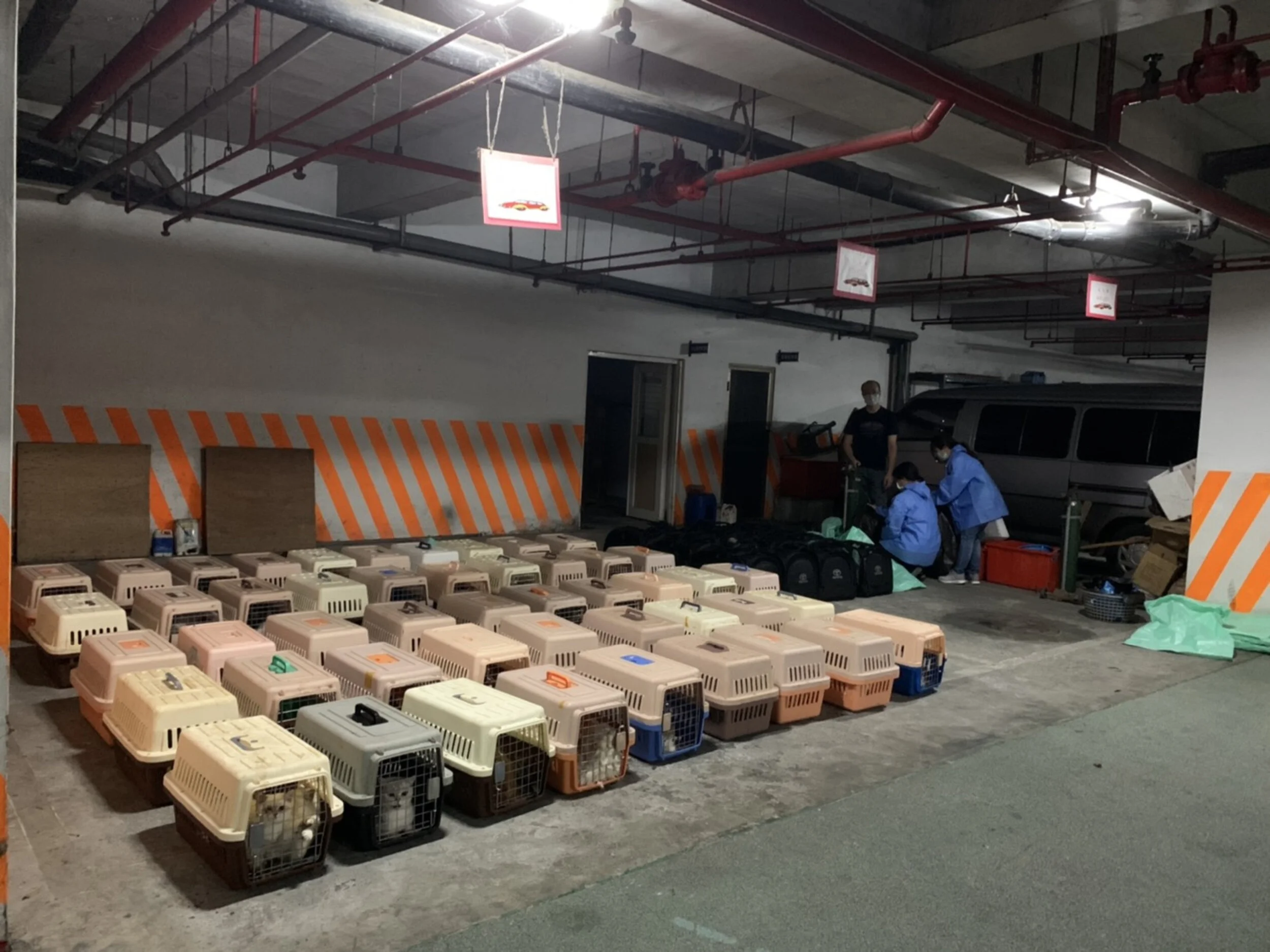154 cats euthanised in Taiwan on International Homeless Animals’ Day.
Quarantine officers in Taiwan made the shocking decision Saturday 21 August to euthanise 154 stray cats that were being smuggled into Taiwan on a fishing vessel from China, sparking national controversy on International Homeless Animals’ Day.
The fishing vessel, which was intercepted near the coast of Kaohsiung in southwest Taiwan, carried 62 cages containing cats of various breeds, including British Shorthair, Russian Blue, Ragdoll and Persian American Shorthair breeds, which had an estimated value of NT$10 million dollars (approximately HK$2.8 million).
Government officials claimed that the cats had to be euthanised due to biosecurity concerns, as the origin of the cats was unknown. This prompted outcry among animal rights groups and animal lovers in Taiwan, criticising the government for not considering other options, such as treating the cats or placing them in quarantine.
Photo from Taiwan News
Chen Chi-hung, the minister of Taiwan’s council of agriculture, defended the government’s decision. He claimed that quarantine was not a feasible option considering the long latency periods of viruses. However, he did mention that the council of agriculture will work with the Ministry of Justice to amend the Smuggling Penalty Act to increase penalties for animal smuggling. The proposals include raising fines to at least NT$3 million and prison sentences to more than 7 years, which is currently the maximum sentence.
Taiwan’s president, Tsai Ing-wen, who is herself an owner of two cats, also commented on the issue. She blamed the smugglers for the tragic incident, and asked the public to understand that the cats had to be put down to prevent the import of infectious diseases into Taiwan. At the same time, she stressed that legal reform should be considered to allow for more humane measures in respect of the treatment of smuggled animals.
Under Taiwan’s disease prevention regulations, namely the “Statute for Prevention and Control of Infectious Animal Diseases”, quarantine permits must be applied for prior to the importation of certain animals into Taiwan, in order to inspect and quarantine such animals at the port of entry. Without a permit, the animals would be culled or refused entry.
The fact that the law does not provide any flexibility has led to the innocent killing of numerous smuggled animals, an issue that local NGOs have continuously flagged to the government over the years. Though increasing the penalties for animal smuggling may help reduce the number of such cases, the law should be amended so that smuggled animals are not automatically subject to culling before any actual investigation is conducted, an issue that has also been raised by the Environment and Animal Society of Taiwan, which asked for investigative powers to be granted to animal protection organisations who could take over animal smuggling cases from the coast guard.
This is just one of the many pet smuggling incidents this year. As reported, in Hong Kong, there have been at least two cases of known animal smuggling by boat within the last 12 months. Local residents have also found dead pets washed up on the city’s shores, likely to have been tossed into the sea by smugglers trying to lighten their load during their escape from the authorities. In the UK, a sudden rise in the number of puppy smuggling cases this year prompted plans to tighten welfare standards for dogs imported into the country.
The COVID-19 pandemic has in many ways contributed to the rise in pet smuggling cases. Some owners who are separated from their pets due to travel restrictions have arranged for their pets to be smuggled across borders, as the pandemic has made it very costly and in some cases impossible for animals to be legally imported. There has also been a surge in demand for pets, particularly in areas subject to lockdowns, where people are craving the company of animals. This has prompted local breeders to raise their prices, which has in turn encouraged the cheaper option of pet smuggling.
Whilst legal reform and policy review may help deter animal smugglers, we should always be reminded that illegal pet importation is driven by demand – people who are buying pets and seeking prestigious breeds. The amendment and propagation of animal laws and regulations will take time, but what animal lovers can do right now is to avoid buying animals and raise awareness of adoption. The message is clear: adopt – don’t shop.
Courtesy of Ruby Tam
Main Sources
Euthanisation of 154 cats in Taiwan:
https://www.taiwannews.com.tw/en/news/4274421 https://www.theguardian.com/world/2021/aug/23/decision-to-euthanise-154-cats-found-in-smuggling-operation-sparks-outrage-in-pet-loving-taiwan
https://focustaiwan.tw/politics/202108220009 https://www.taipeitimes.com/News/front/archives/2021/08/23/2003763065
https://law.moj.gov.tw/ENG/LawClass/LawAll.aspx?pcode=M0130003
Recent pet smuggling incidents:
https://www.bbc.com/news/uk-58287850
https://www.bbc.com/news/uk-scotland-54115646
https://news.rthk.hk/rthk/en/component/k2/1545381-20200823.htm


